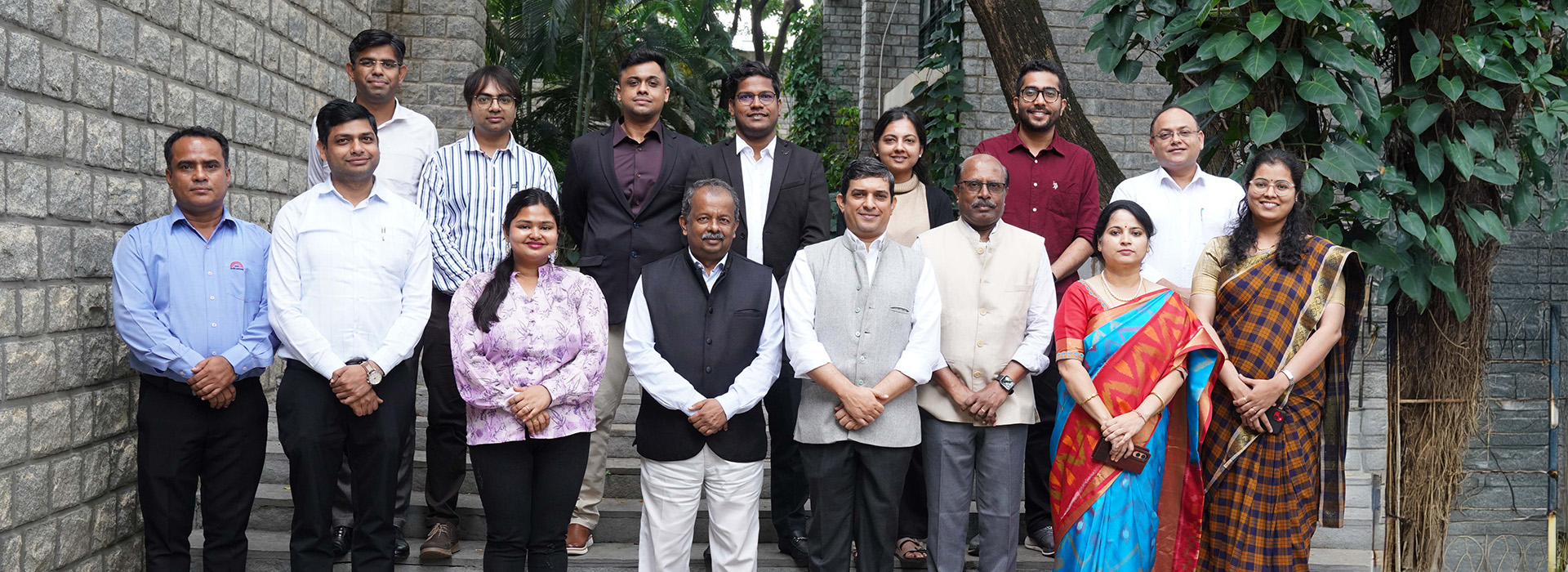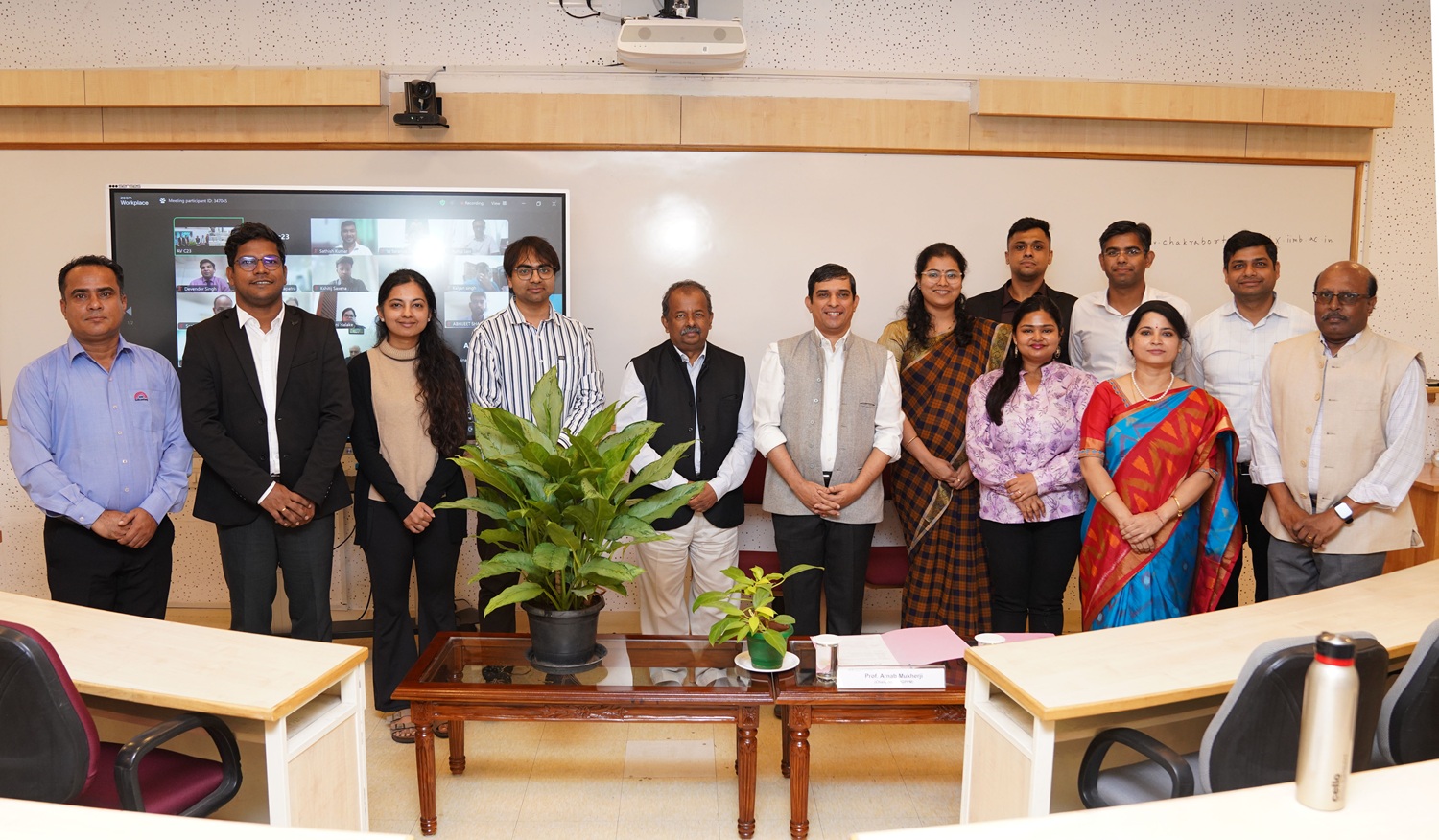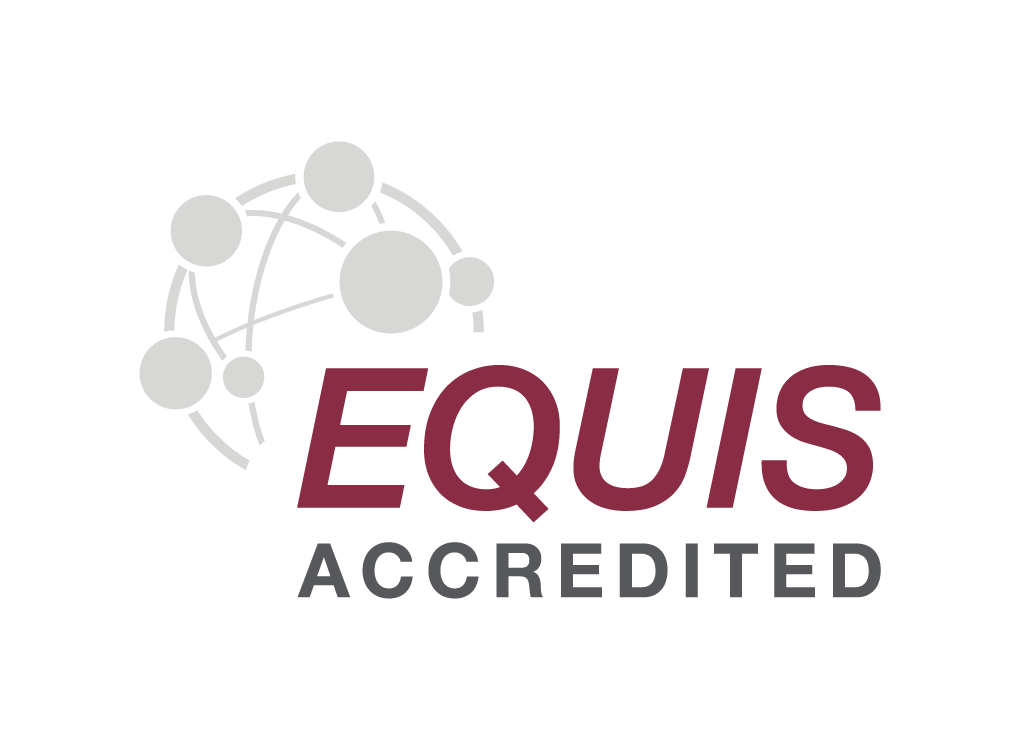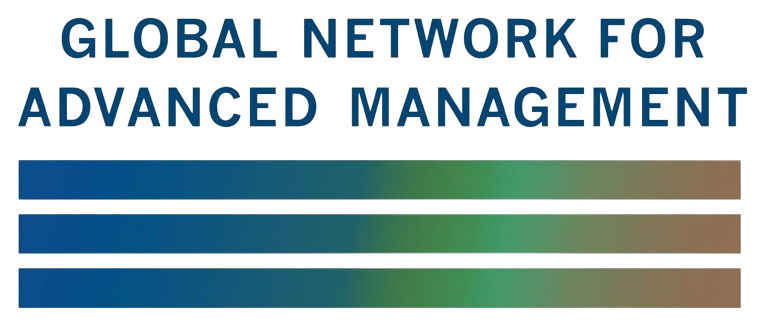Master of Management Studies (Public Policy) – PGPPM
Overview
The Post Graduate Programme in Public Policy and Management (PGPPM), launched in 2002 by IIMB, is a ‘one-of-its kind’ programme aimed at improving efficiency and leadership skills among policymakers and administrators while exposing them to topical issues in management. PGPPM is a Degree program offered in a hybrid-format with online and on-campus components where students engage with the IIMB learning ecosystem in multiple ways.
The re-designed PGPPM is 14-month post graduate programme offered by IIMB leading to a Masters of Management Studies (Public Policy) degree. The PGPPM aims to enhance skills to frame policy, taken on leadership roles and raise efficiency through exposure to management principle for policymakers and public administrators. The programme also requires participants to submit a capstone project – the Integrative Policy Paper (IPP). The IPP emphasises learning during the program by applying concepts and principles from the classroom to a policy sensitive issue. Participants spend time on campus in Module 3 (13 weeks) and Module 6 (4 weeks), while Modules 1, 2, 4, and 5 uses IIMB’s robust MOOCs platform to allow students to learn while working. Further details of the program are available under the Program Structure tab.
Entry for the 2025 cohort is through the “DoPT Sponsored” route for government officers. From 2025, the program is also available to public policy aspirants outside the DoPT ecosystem through the “Open” route. On completion of the PGPPM program requirements students receive the Masters of Management Studies (Public Policy) degree i.e. MMS (PP). In its revised format, PGPPM ensures that the program’s graduates are well-rounded professionals, both from the perspective of public policy and general management – a unique combination.
PGPPM alumni occupy senior positions focussed on applying public policy and managerial principles in different roles in Government Ministries and organizations, in the private consulting and corporate space, UN bodies, and the broader social sector. Some of these are: Central Bureau of Investigations. Securities Exchange Board of India (SEBI), Telecom Regulatory Authority of India (TRAI), Namma Metro, Antara Foundation, SELCO Foundation, Access Health, Invest India, IMF, and the World Bank.
Admission info: pgppmadm@iimb.ac.in
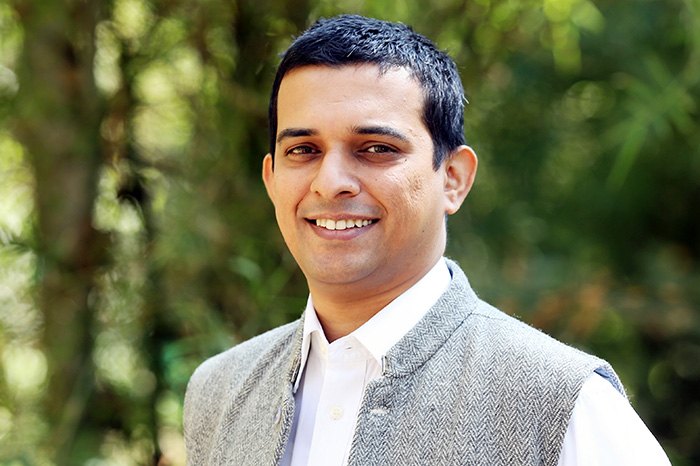
Message from the Chairperson
Professor Arnab Mukherji
Chairperson - Post Graduate Programme in Public Policy and Management
The Post Graduate Programme in Public Policy and Management (PGPPM) is a Degree programme offered by IIM Bangalore. This programme is IIMB’s primary educational engagement in the public policy arena. Entering the third decade of operations, PGPPM brings together a unique multidisciplinary public policy exposure that blends IIMB’s rich management learning ecosystem with its strong experience in the public policy domain. Over the years, many graduates of this programme have gone on to occupy key policy making roles in government, have led public and private policy organizations, and made academic contributions by published their work in peer-reviewed journals and in professional books.
The PGPPM focuses on individuals who aspire for public policy sensitive career roles in the near future. The programme’s inception lies in the increasingly problem-driven and project-led perspective of policy engagement that is identified with the Government of India (GoI) in its post-liberalization avatar. Mission-mode approaches, public goals and team-driven approaches to public service delivery are much more crucial to the success of policy today, than it has ever been before. Unlike in the past, the government today regularly works with organizations outside the government with different goals, different abilities, and different work culture. Organizations in the private sector, or the non-profit sector, have organizational logic which is different from the government sector. The practice of public policy today thus needs to straddle this organizational complexity in ensuring delivery -- this is often challenging as there are different cultures, different compensation structures and often seemingly incompatible motivation for engagement.
And yet, it is in this space that many policies in the last 30 years have functioned, sometimes failed, sometimes succeeded, and achieved global standards of performance. India’s federal structure, socio-economic challenges and sometimes even its Constitutional foundation need re-engagement from the past with changing demographic pressures, economic challenges and emerging technological complexities. PGPPM provides a window to engage with many of these issues in a structured manner, to provide participants with structures and concepts to deal with such issues. Focusing on a curriculum that emphasizes principles of management and public policy, the participant gains in depth knowledge on conceptual foundation, policy frameworks and how sectoral engagement histories of policy can help understand the design of policy in the future. Practice oriented modules such as the Policy Immersion, or the Policy Practicum offer participants a perspective on how policy impacts those it is intended for. Further, PGPPM participants are expected to write a Integrative Policy Paper where they apply some of these learnings to a specific public policy problem. Many of these writing projects have led to research papers, or led to ideas for policy designs that were adapted and directly used by different policy relevant organizations.
Following recommendations from the Department of Personnel and Training (DoPT) and the internal IIMB Review Committee, PGPPM has been re-designed, with effect from the 2023 cohort. In an attempt to make the programme more accessible and leveraging IIMB’s online learning ecosystem - IIMBx, PGPPM has transitioned into a modular, hybrid programme that spans 14 months and is spread across six terms. Four of the terms, spanning 36 weeks, are online, while the remaining 21 weeks are on-campus. IIMB’s rigorous blended learning and evaluation systems are at the center of the programme’s delivery. These will provide a variety of engagement opportunities for the participants and new ways to engage with IIMB faculty as well as the school’s Centres of Excellence and Initiatives. This will also provide an academic grounded learning experience to the participants in the public policy arena.
With the 22nd Cohort we welcome applications from outside of the DoPT ecosystem. All individuals who aspire for a Master's Degree in Public Policy and Management are welcome. We have a long legacy of open candidates who have gone on to do special things in the Public Policy Space and we hope to build on this for the 22nd Cohort. The program is open for working professionals given its significant online component and thus, aspirants no longer need to leave jobs to do join the program. This adds to the unique value proposition of the PGPPM offering for both government and the non-government sectors.
If public policy interests and excites you, then I have no hesitation to suggest the PGPPM as the learning ecosystem that fits your aspirations. Come join the vibrant IIMB community!
Current Batch Profile-Industry Wise Distribution
| Service | Male | Female | No. |
| Indian Administrative Service | 1 | 1 | 2 |
| Indian Forest Service | 1 | - | 1 |
| Indian Revenue Service (Income Tax) | - | 3 | 3 |
| Indian Revenue Service ( Customs & Indirect Taxes) | 1 | 1 | 2 |
| Indian Statistical Service | 1 | - | 1 |
| Sashastra Seema Bal (SSB) | 1 | - | 1 |
| Indian Defence Service of Engineers (IDSE) | 1 | - | 1 |
| Indian Post & Telecommunication Accounts and Finance Service | 1 | - | 1 |
| Indian Information Service | 1 | - | 1 |
| Indian Railways (6 Services) | 7 | 2 | 9 |
| Open candidates(2 Social Sector, 1 Law, 1 IT, 1 Finance) | 2 | 3 | 5 |
| Total | 17 | 10 | 27 |
PGPPM Experience Profile
| Experience In Years | No. |
| 5 | 5 |
| 6 - 8 | 8 |
| 9 - 11 | 5 |
| 12 - 14 | 4 |
| 15 & Above | 5 |
| Total | 27 |
Profile of Accepted Candidates Bachelor's Discipline 2025
| Discipline | Female | Male | Total |
| Engineering | 6 | 14 | 20 |
| Arts | - | 1 | 1 |
| Commerce | - | 1 | 1 |
| Science | 1 | 1 | 2 |
| Others | 3 | - | 3 |
| Total | 10 | 17 | 27 |
Alumni
Career Development Services
PGPPM in the News
Videos
PGPPM : 2018 Admission
PGPPM : A 40-week modular and hybrid PG Diploma programme
Post Graduate Programme in Public Policy & Management
Testimonials
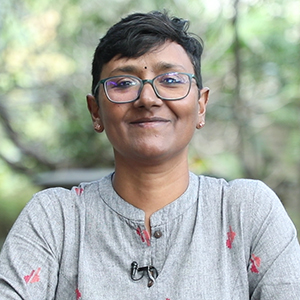
“The Public Policy and Management Programme at IIMB is unique in terms of the wide range of electives it offers. The International and Rural Immersion modules provide participants unique perspectives.”
- Sarika Mohan, from the Indian Civil Services and PGPPM 2019-20
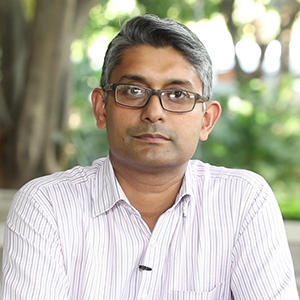
“The programme is relevant to development, industry and society at large. It helps participants develop a holistic approach in devising area-specific policies.”
- Amit Verma, IFS officer and PGPPM 2019-20
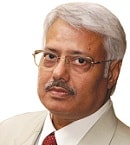
“Ours was the first batch of the PGPPM at IIMB. From being pampered officers, we went on to become committed students. We became part of rigorous academic activities and stimulating intellectual discussions. We learnt about new economic and managerial ecosystems, social and technological innovations, organizational behavior, regulatory regimes, and market mechanisms required for growth and development of a new India. There was plenty of emphasis on personal development through yoga, meditation and introspection. New ways of pedagogy, such as snap examinations, quizzes, case studies, group assignments and a dissertation, proved enriching. For public servants like us nothing could be more satisfying than the PGPPM at a mid-career level. My colleagues pursuing management programs in various international universities found the PGPPM at IIMB ahead of similar contemporary courses. The PGPPM has helped me design better policies and implement programs in a more nuanced manner. It has inculcated in me rationality and accommodation. It has helped me in making evidence-based decisions.”
- Dr. A. K. Verma, Joint Secretary,
Ministry of Power,
Govt. of India, and PGPPM Class of 2004
“Enrolling for the PGPPM at IIMB was an extremely useful decision for my career. I learnt the frameworks of policy making and developed the ability to validate my decisions using analytical skills developed during the program. The diverse and interesting cohort proved to be an excellent peer learning platform. I learnt to analyze, evaluate, unlearn and refocus my role in public service applying contemporary concepts and practices of public policy management in India and abroad. I strongly recommend the program for people who want to learn the art and science of Policy making.”
- Ms. Jyotsna Sitling, Joint Secretary,
Ministry of Skill Development & Entrepreneurship (MoSDE),
Govt. of India, and PGPPM Class of 2011
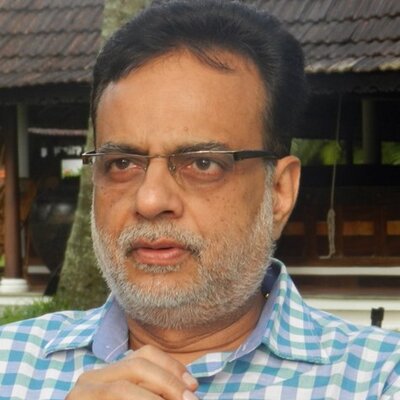
“The program and the faculty at IIMB gave me a new paradigm of learning. I came to study Public Policy and Management at IIMB after 20 years in the Indian Administrative Services (IAS). It was quite a humbling experience. Like most IAS officers, I thought only experience counts in the making of public policy. But I was completely wrong. My biggest learning from the program at IIMB was that one should not make any policy or program without proper analysis of relevant data. When I chose to come to IIMB, I had many options before me, including the option of studying at a foreign university. But it was my conviction that the study of public policy is more relevant if it is done in the Indian context with the help of Indian case studies. I therefore chose IIMB. I believe all prestigious management institutions in India should offer an exclusive public policy program and the government should create a policy environment that encourages civil servants to join such programs.”
- Dr. Hasmukh Adhia, Former Revenue Secretary,
Govt. of India,
Present Non Executive Chairman of Bank of Baroda, and PGPPM Class of 2004
“The PGPPM at IIMB broadened my horizons and honed my leadership skills. It put me in the right direction in terms of my career roadmap. The well-designed courses, the faculty who encourage out-of-the-box thinking, the diverse cohort and the fabulous campus made my time at IIMB memorable. The brand itself provides the extra edge, which can catapult you to great heights, professionally.”
- Sharmistha Mukherjee, AVP, Barclays, and PGPPM Class of 2014

“Twenty years in the future, when I think back on my professional journey, I know IIMB will be a key contributor to my growth. Hailing from a technical background and having worked in the consulting sector, I decided to pursue the PGPPM at IIMB for its data-driven approach and interdisciplinary design on policy making, with an India-centric focus. The program empowers students with the necessary exposure and expertise to excel in public policy and allied sectors. The faculty at IIMB helped me understand possible solutions to policy challenges of today, with a larger vision for tomorrow. With students from diverse backgrounds, I was provided with the unique opportunity of learning from the experience of my colleagues.”
- Aroopjyoti Tripathy, Government Reforms & Infrastructure Development,
PwC India, and PGPPM Class of 2015

“The public policy and management programme at IIM Bangalore has the right blend of concepts. The programme is designed in an innovative manner and delivered in a way that strengthens the public policy maker with enhanced managerial skills. The programme benefits professionals from government as well as non-government sectors as it offers innovative tools and techniques on public policies which is the need of the hour. The curriculum and the vibrant learning environment at IIMB helped me sharpen my administrative skills and offered me new perspectives. I recommend the programme to all those working in the government sector and the corporate world.”
- Shri Hari Ranjan Rao, IAS, PGPPM Class of 2005
Secretary to the Chief Minister, & Secretary,
Departments of Information Technology & Public Service
Management, Govt. of Madhya Pradesh
Managing Director, M.P. State Electronics Development Corporation,
CEO, Madhya Pradesh Agency for Promotion of
Information Technology
Accreditation and Rankings
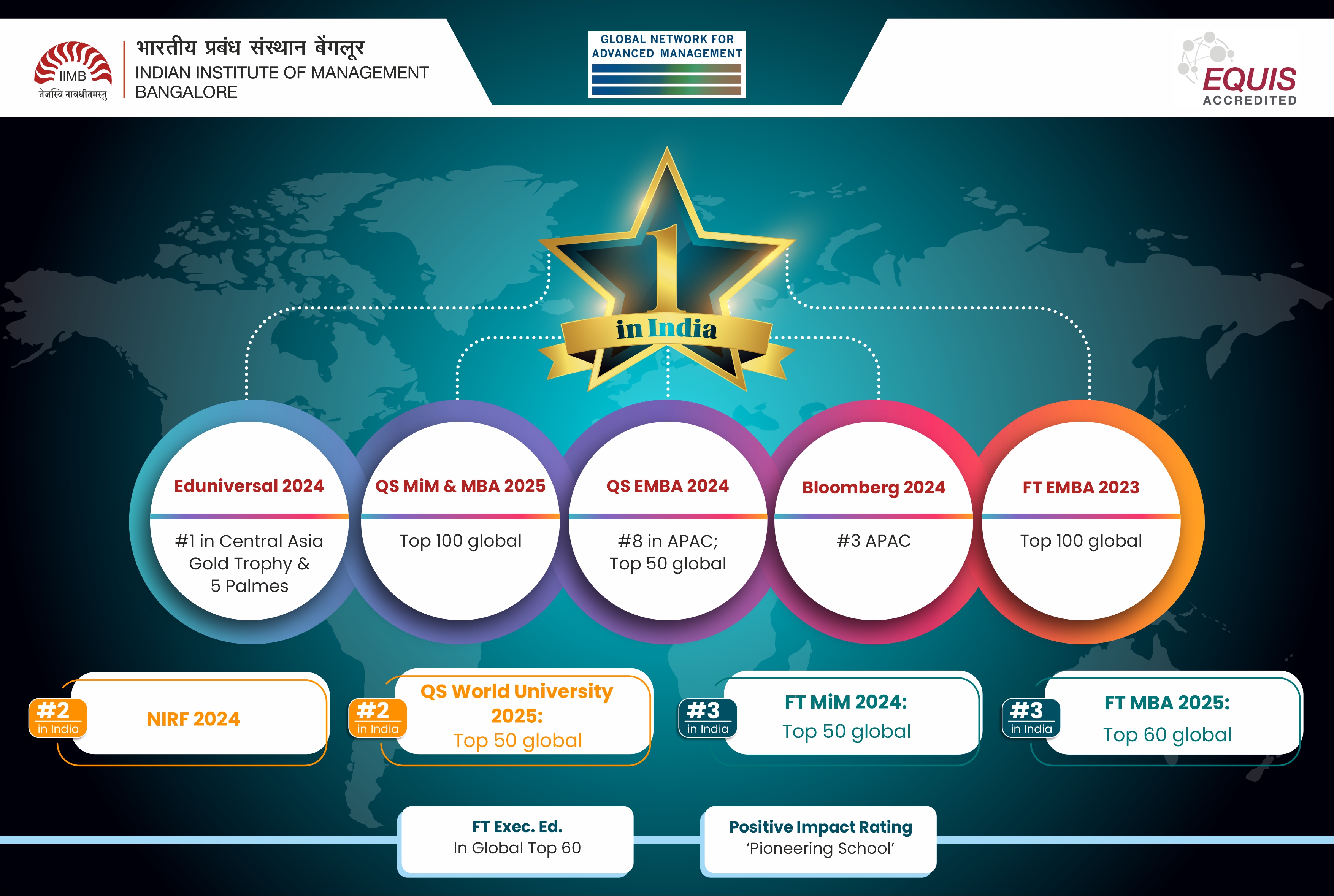
Student Achievements
View all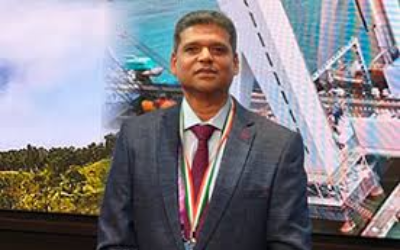
Kiran BS, PGPPM ’25, awarded Ati Vishisht Rail Seva Puraskar 2024
PhD candidate Sonal Nayak nominated for Academy Of Management MOC Division Best Paper Award in Entrepreneurial Cognition under student-led category
Doctoral scholar Nitesh Bhat wins AOM Best Reviewer Award in CAR (Careers) division

